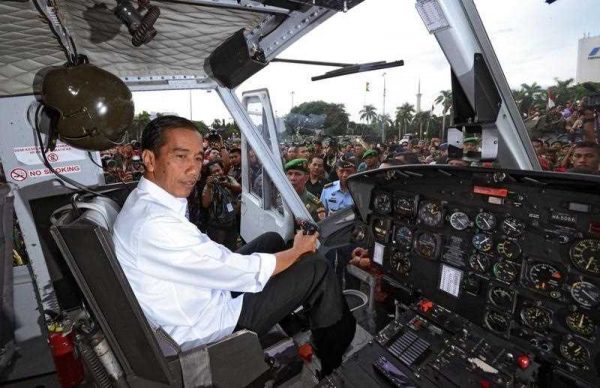At the same time, a revival of investor confidence is in prospect if the government can pursue a constructive reform path and there are positive signals in this regard. These competing factors — significant challenges on the ground versus the success of government in reviving investor confidence — will shape the Indonesian economy in 2015.
The economic reality on the ground is challenging. Prospects of capital flow volatility and flagging demand from China paint a picture of a difficult 2015 external environment, albeit offset in part by lower global oil prices. The external current account deficit sits stubbornly at around 3 per cent of GDP despite the growth slowdown and means continued reliance on portfolio-related flows. The rate of credit growth is trending down, falling by a half since end 2014, and financial stability is closely watched.
The environment for policy reform has its own challenges. The government lacks a parliamentary majority and, at least to date, the opposition has shown little indication that it will support the government’s program. Welcome moves by the government to centralise policy making and make it more evidence-based will help avoid the interest group capture of policy that has characterised recent years. Yet there remain strong interests opposing trade and investment reforms that are essential for the emergence of a more competitive Indonesian economy.
Reviving investor confidence by implementing a constructive reform agenda is thus essential. The drivers of the economic slowdown remain in place and some needed policy actions may well intensify the slowdown. Reducing subsidies hits private demand and has resulted in electricity and diesel prices rising by nearly 40 per cent in 2014. A further challenge for business activity is a cumulative increase in minimum wages of over 50 per cent in the last few years. Labour market issues more broadly are a major policy challenge but one that has not yet featured in the government’s agenda.
The antidote to a growth slowdown is the timely rebalancing of the economy toward more productive investment. This means higher public and foreign investment: without the latter, risks to the external position will mount as growth picks up. Investment decisions and prospects for a quick turnaround in growth will thus be driven by the strength of reform actions in shining a bright light at the end of the challenging reform tunnel.
The government is off to a good start and can do much irrespective of parliamentary support. The increase in fuel prices prompted by the huge budget cost of subsidies is the highest profile action. This move provides a two or three year window for fiscal reform that needs to find a bridge between rapidly rising spending and stagnating revenues. The government’s priority on the investment climate is a sensible strategic move. This has the potential to address the cost of doing business in a profound way while not requiring parliamentary involvement. Actions on licensing and permit issue along with clarity and transparency (even if not abolition) on the plethora of non-tariff measures and regulations that were introduced in recent years would represent significant progress.
The government’s narrative of high quality and inclusive growth links closely to the essential structural reform agenda. We will not see major new infrastructure on the ground for some time but a meaningful start on key energy, transport, and port investments that can support a larger manufacturing sector would send a strong signal. Urban infrastructure is one of the more potent vehicles to improve the well-being of the urban poor. Essential tax reform will need to be tackled with base broadening in mind rather than a quick fix if it is to secure a brighter investment climate as well as promote social justice and equity.
The government’s policy narrative is still taking shape but the signs are encouraging. On his return from APEC, President Widodo said he took three lessons from his visit to China: the role of a unified vision, to plan infrastructure for the long term, and to focus on getting infrastructure and factories on the ground rather than worrying if that resulted from foreign investment. If the administration adopts this modus operandi to shape policy and frames it in a consistent macroeconomic framework then indeed the prospects are bright despite the magnitude of the challenges facing the new government.
Dr David Nellor is a consultant based in Jakarta.
This article is part of an EAF special feature series on 2014 in review and the year ahead.

